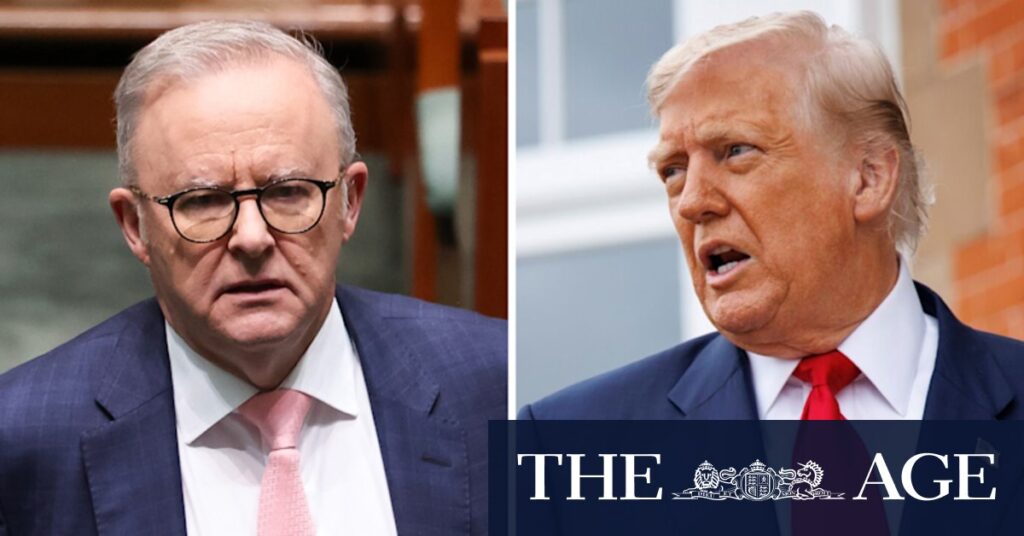
The United States is poised to invest directly in Australian critical minerals projects, a strategic move aimed at securing rare earths essential for American fighter jets. This proposed deal has prompted Australia’s Labor government to allay fears of aligning too closely with the US amid potential trade tensions with China.
The focus on minerals vital for green energy, defense, and smartphone technology will be a key topic during Prime Minister Anthony Albanese’s meeting with US President Donald Trump on October 20. The AUKUS pact, currently under review, will also feature prominently in discussions.
Imminent AUKUS Review and Strategic Minerals
Defence Industry Minister Pat Conroy recently provided what appeared to be the most optimistic forecast regarding the AUKUS review’s completion, suggesting it might be “imminent.” Although he cited Defence Minister Richard Marles, Marles has not publicly used such definitive language. Australian officials have received mixed signals from their US counterparts about whether the review will conclude before the Trump-Albanese meeting.
Details of the anticipated minerals deal with the US remain under wraps, even though it has been in the planning stages for months and is expected to be announced shortly. Australian officials have engaged with miners about the possibility of direct investment from the US Department of War, which was previously known as the Department of Defense. Industry sources, speaking on condition of anonymity, mentioned discussions around creating models similar to the Mountain Pass rare earth facility in California, which is backed by a Department of War loan facility.
US Legislation and Australia’s Mineral Leverage
President Trump’s “One Big Beautiful Bill,” passed in July, has allocated $US100 billion ($155 billion) in loan funds specifically for critical minerals and related industries. Australia, with its abundant supply of key rare earths like dysprosium and terbium, is well-positioned to meet the needs of American companies, particularly for advanced defense technologies such as F-35 jets, each requiring 415 kilograms of these minerals.
“We know that American companies desperately need critical minerals, and Australia is very well placed to service that need,” Treasurer Jim Chalmers stated from the US.
The unique availability of these minerals provides Prime Minister Albanese with significant leverage as he prepares for talks at the White House.
US-Australian Alliance and Global Trade Dynamics
For months, the US-Australian alliance has been under scrutiny, with the US urging Australia to increase its defense spending to over 3% of GDP, amounting to tens of billions of dollars annually. However, the importance of critical minerals has surged as China has restricted exports, threatening the sovereign manufacturing capabilities of the US and other nations.
China’s export restrictions have led to a 100% tariff threat from Trump, causing turmoil in global stock markets and raising the specter of a trade war between Australia’s key security ally and its largest trading partner.
US Treasury Secretary Scott Bessent recently advocated for Western nations to “decouple” from China, a suggestion quickly dismissed by Chalmers, who emphasized Australia’s efforts to stabilize its economic relationship with China.
“Australia’s interests are best served by more trade, not by more trade barriers,” Chalmers asserted.
In response, China’s Ministry of Foreign Affairs spokesperson Lin Jian defended China’s export control measures as consistent with international practices aimed at safeguarding global peace and fulfilling international obligations.
Future Prospects and Diplomatic Engagements
Conroy expressed optimism about the AUKUS pact, highlighting positive feedback from congressional leaders and Pentagon officials. “At a congressional level, I was meeting with senior leaders in Congress who were evangelical about the importance of AUKUS,” he noted.
Prime Minister Albanese is scheduled to depart for the US on Sunday, with a meeting with President Trump expected to take place in the Oval Office, likely early Tuesday morning Australian time.
As geopolitical tensions and economic interests converge, the outcomes of these discussions could shape the future of international trade and defense collaborations.







